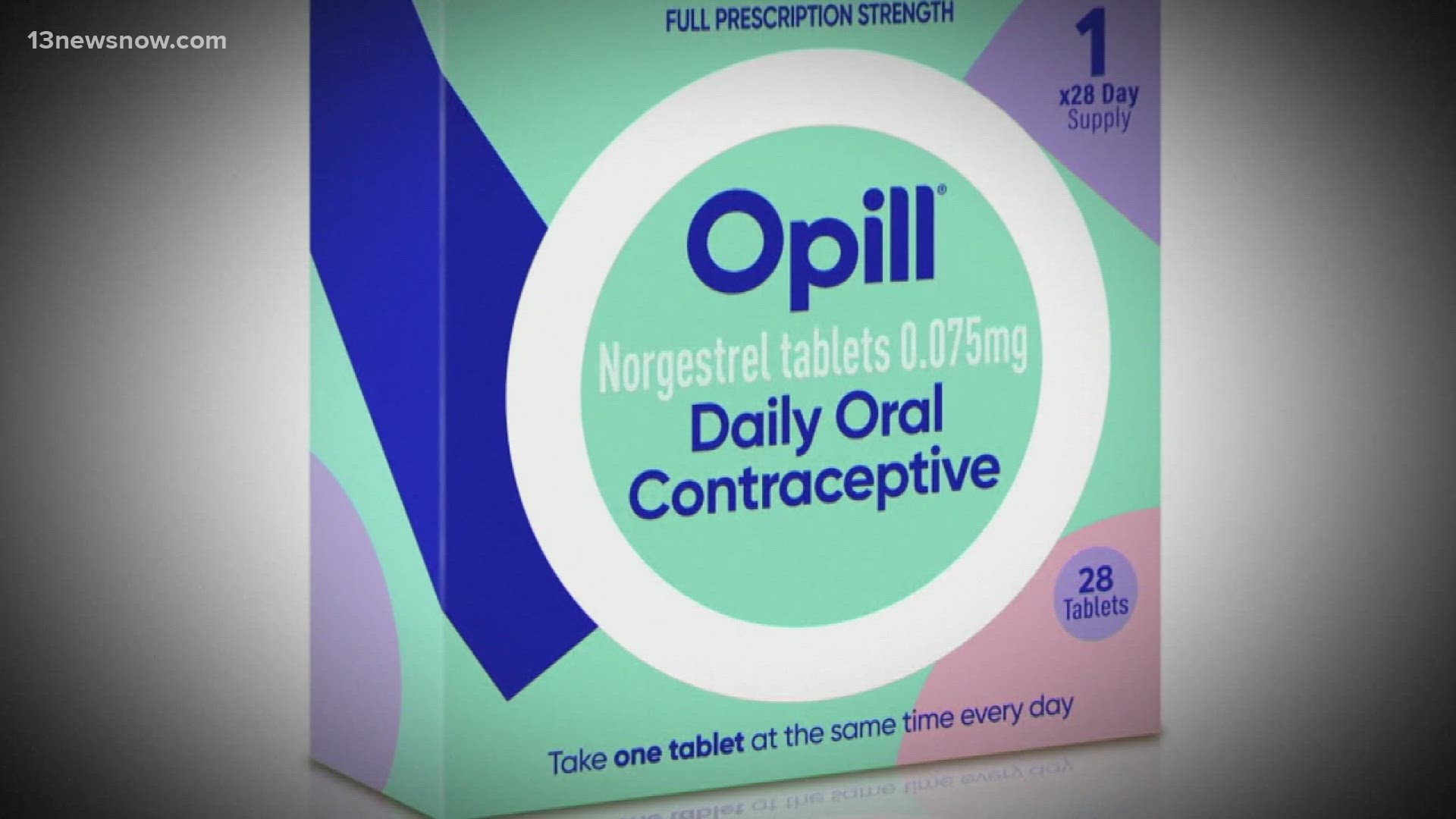NORFOLK, Va. — Women will soon have a new way to access birth control with a new over-the-counter medication hitting stores next week.
The OPill won’t require a prescription from your doctor or pharmacist. Meaning, that women and teen girls will be able to buy it as easily as they buy aspirin or eye drops.
The Food and Drug Administration approved the drug last July, saying the once-a-day OPill can be sold without a prescription with no age restrictions.
Something longtime pharmacist Dr. Anna Peoples said is a good thing.
"We think it’s very critical—one of the problems people have with their birth control is access. This will give people greater access," she said.
But Peoples said in the current political climate, she’s surprised it’s happening.
"With all the controversy in the media and everywhere else around women’s reproductive rights, I think this is a move forward."
OPill has been on the market for 50 years and uses a single synthetic hormone and generally carries fewer side effects than the more popular combination of estrogen and progestin pills.
"The over-the-counter OPill is going to be a progestin-only product, which means it only has one hormone in it," she said. "Which makes it a more safe product for use, it doesn't have the side effects of estrogen."
Hormonal birth control pills have always required a prescription, typically so doctors can screen for conditions that raise the risk of rare, but dangerous, blood clots.
Peoples said it’s still a good idea to talk to your doctor or pharmacist before taking the medication.
"Just because it’s over the counter and you can get it willy-nilly, you still don’t want to arbitrarily just take it," she said.
A one-month supply will cost about $20 and a three-month supply will cost around $50, according to the company's suggested retail price. It will also be sold online.
Peoples said they should get their shipment in sometime next week.
"We’ve already ordered it. We’re already on the books to receive it. I feel like it’s something, I feel like it’s very positive. I really like the idea that we have it in addition to the Plan B, so this will give women another choice," said Peoples.
One concern raised by FDA advisers was whether people taking this medication would adequately screen themselves for potential medical risks.
Ultimately, the FDA said those risks were minimal compared to the benefits of preventing unwanted pregnancies. The U.S. has about 3 million unintended pregnancies every year.

